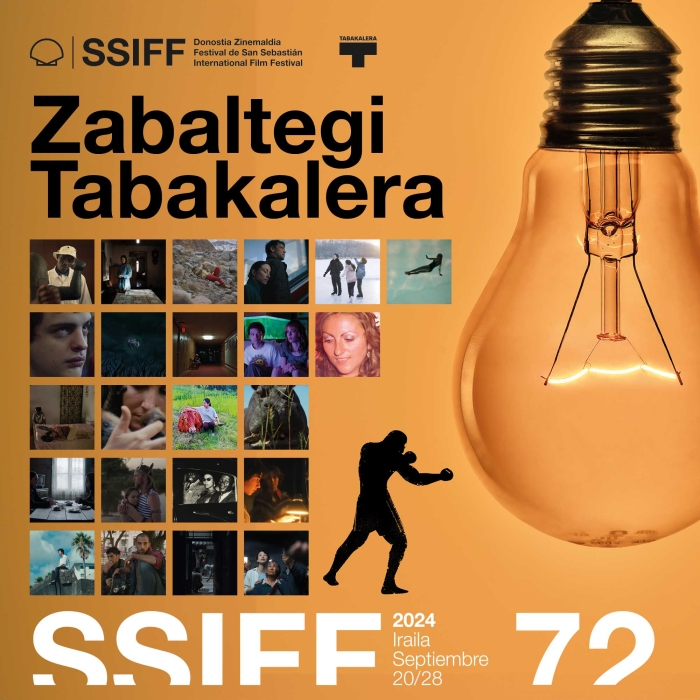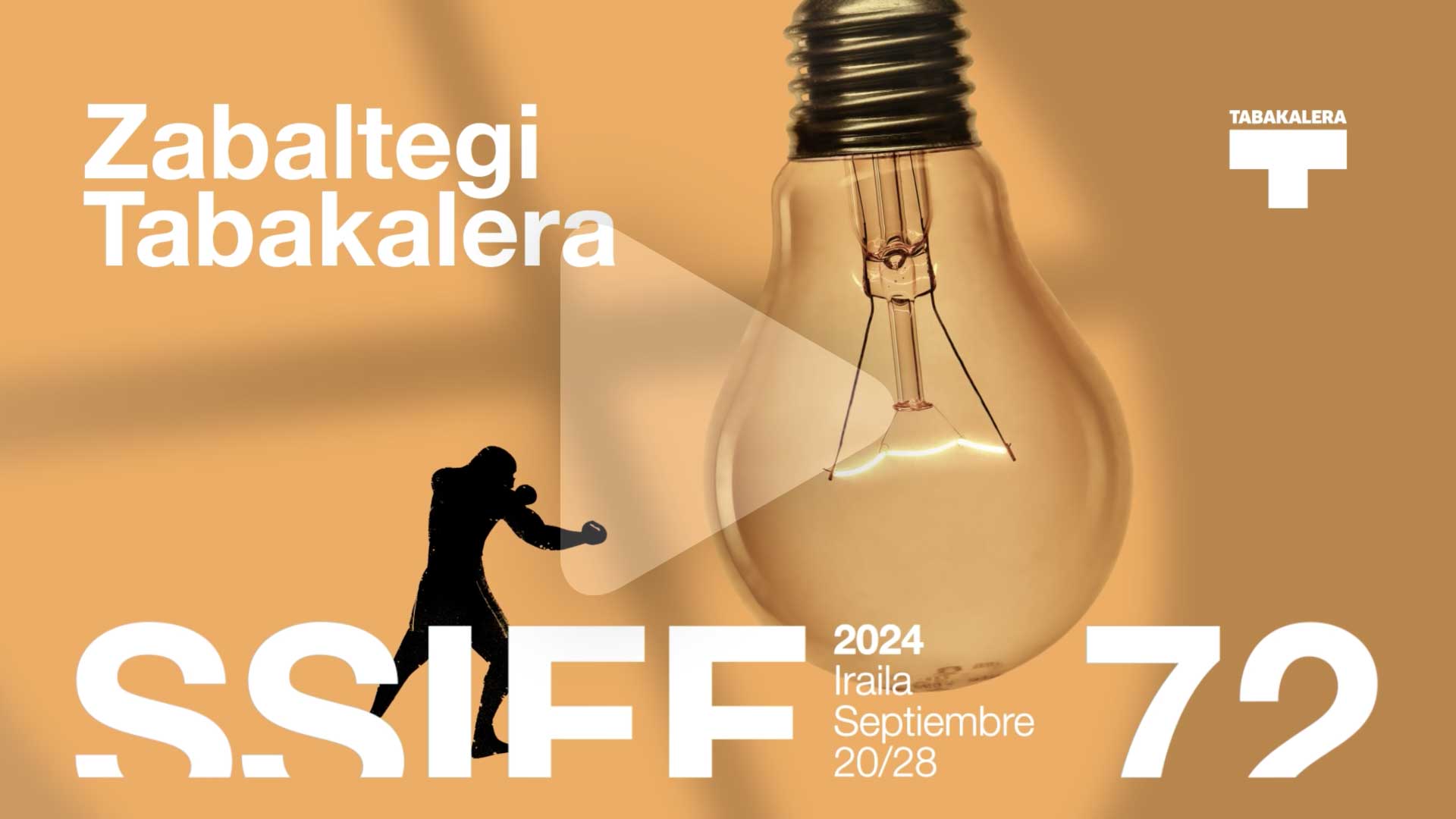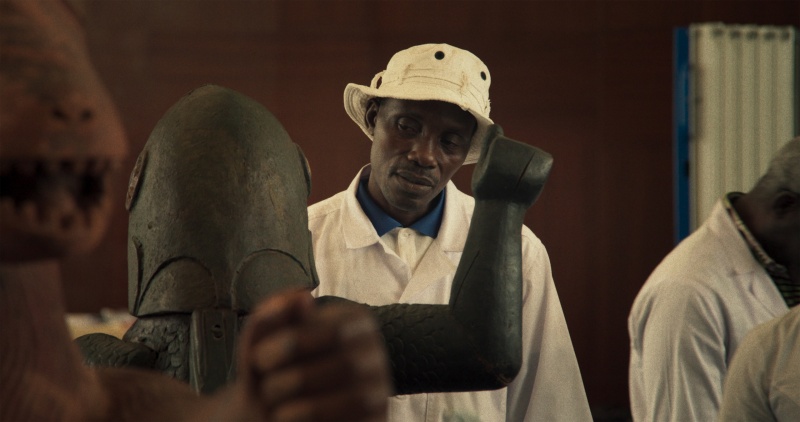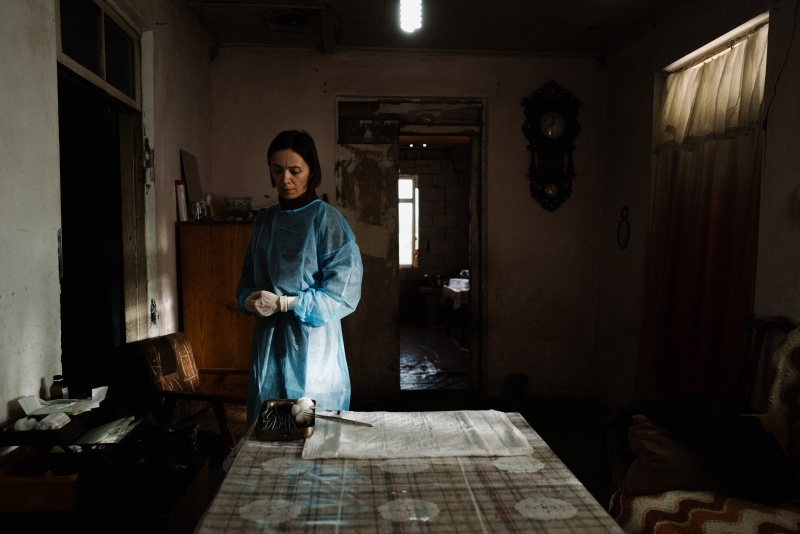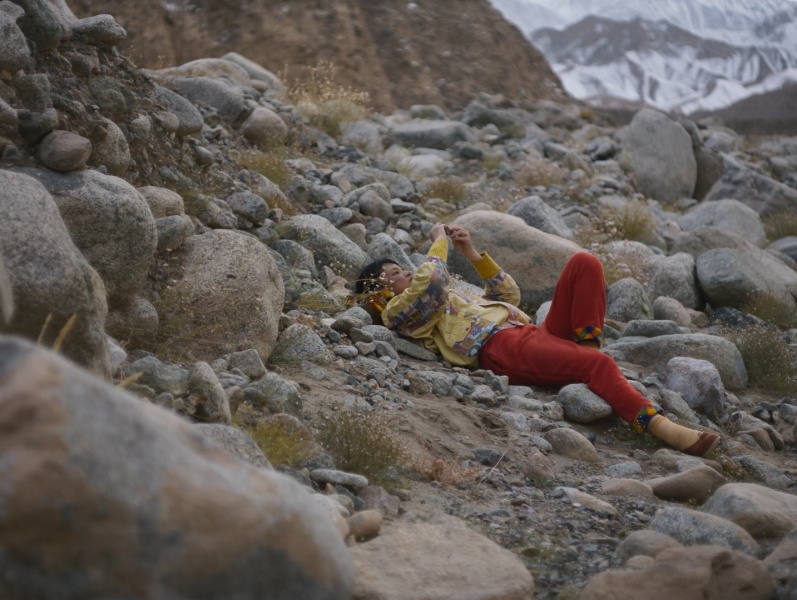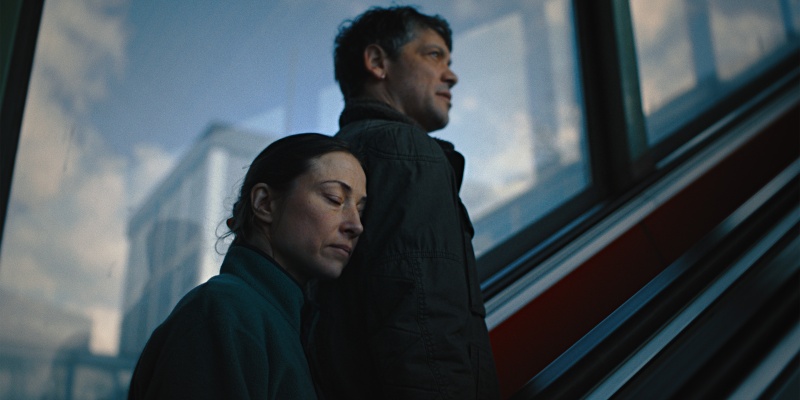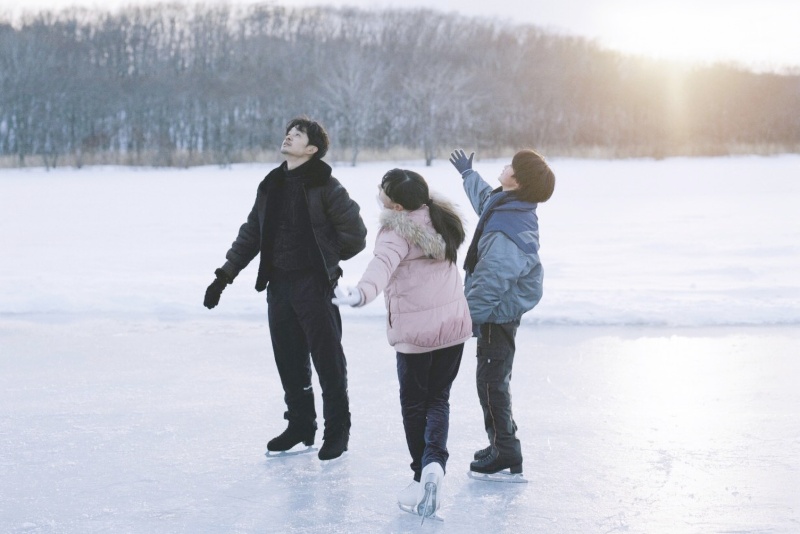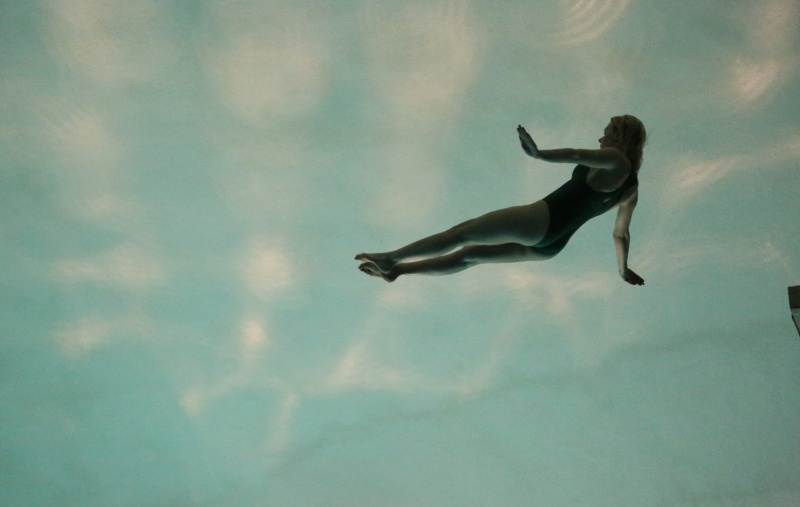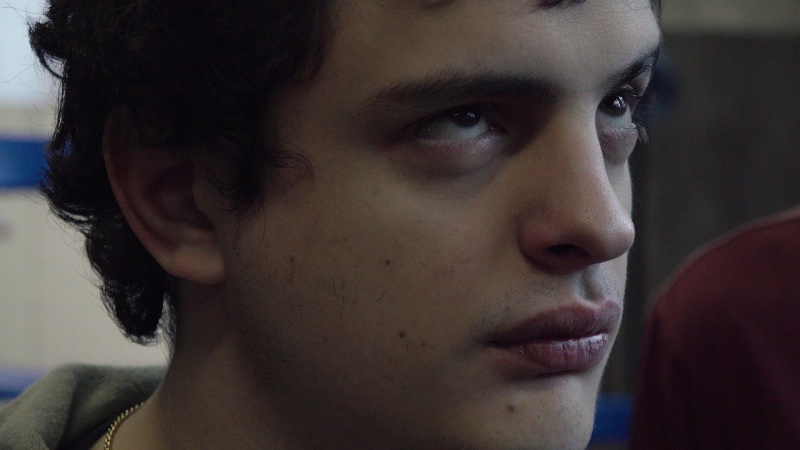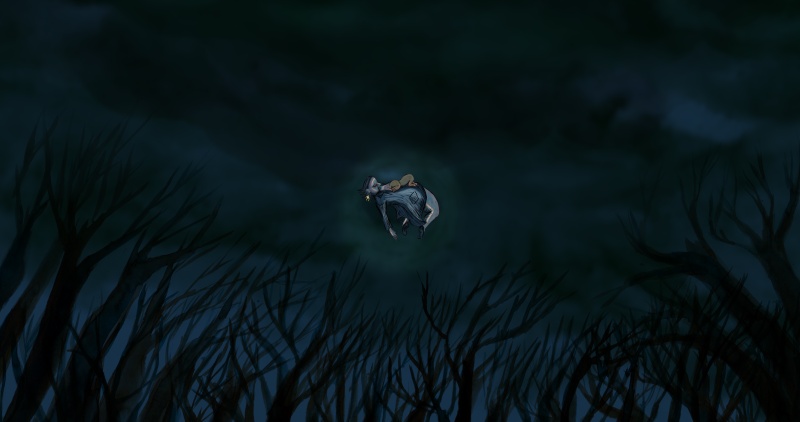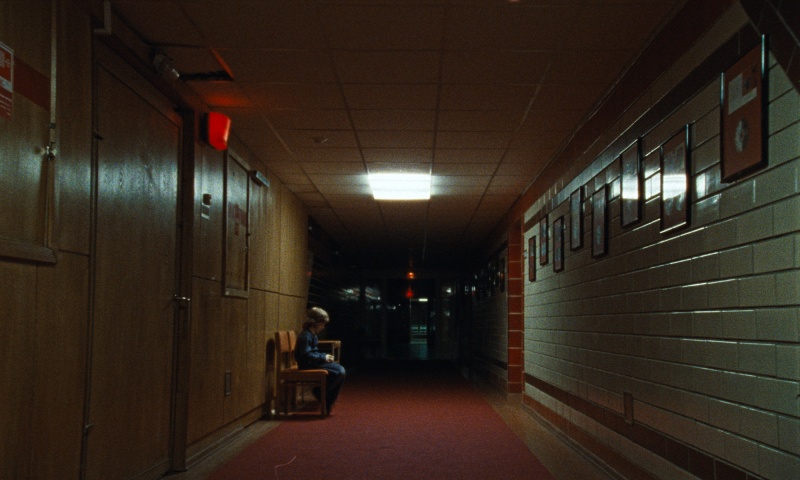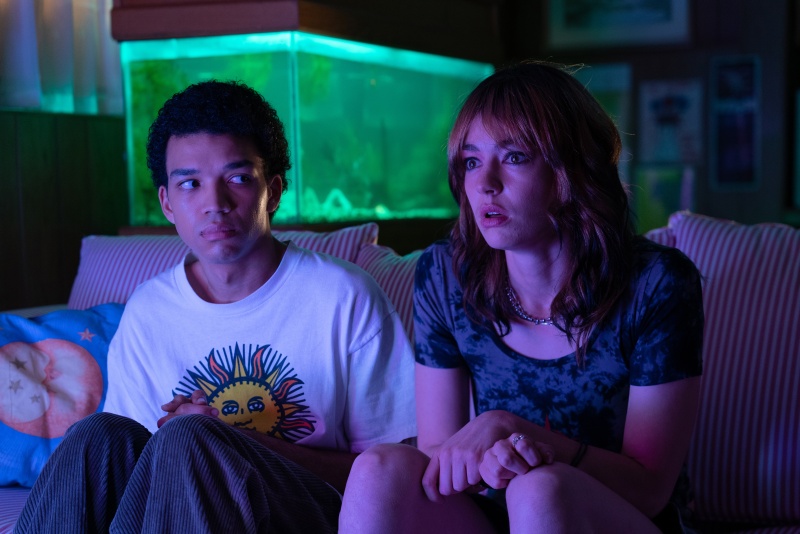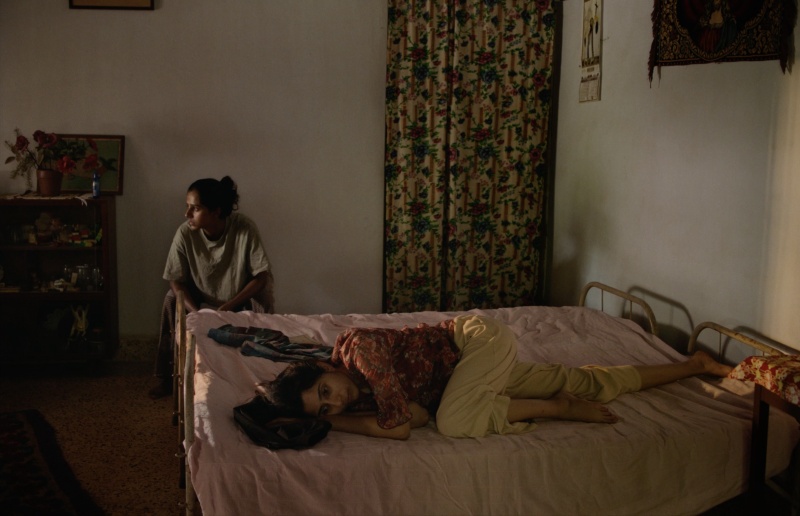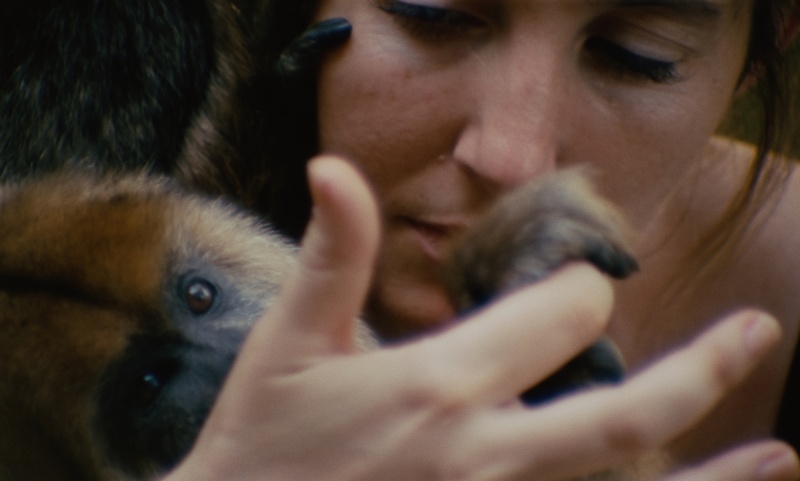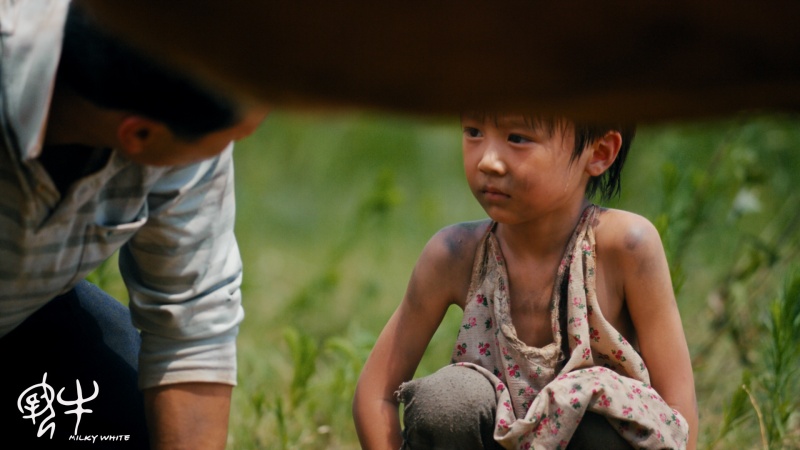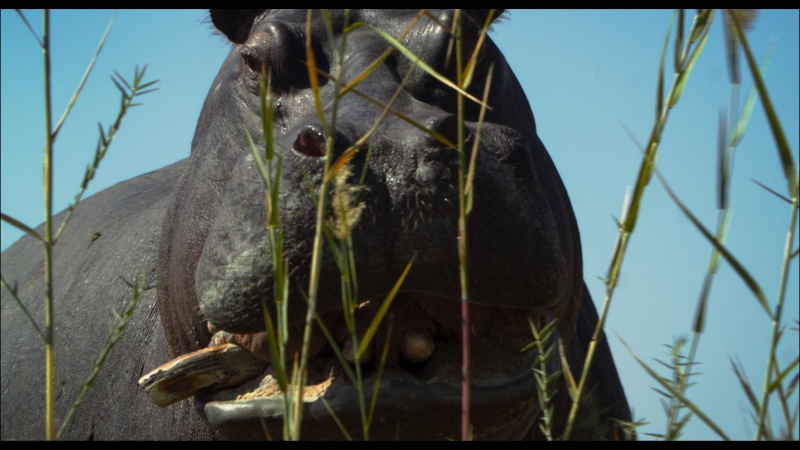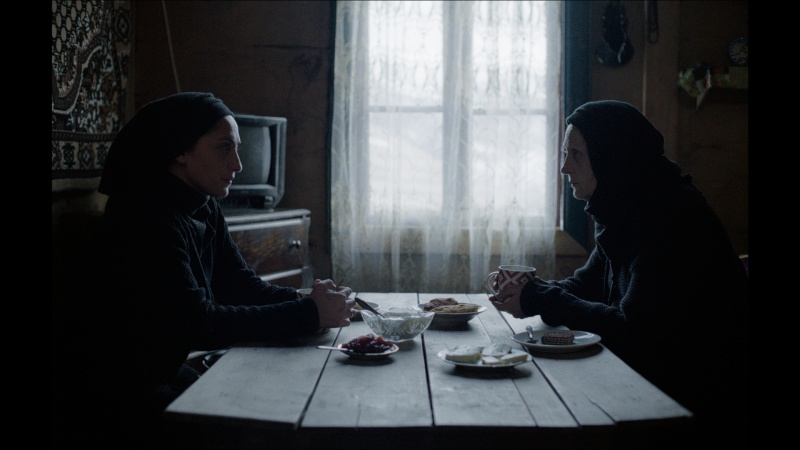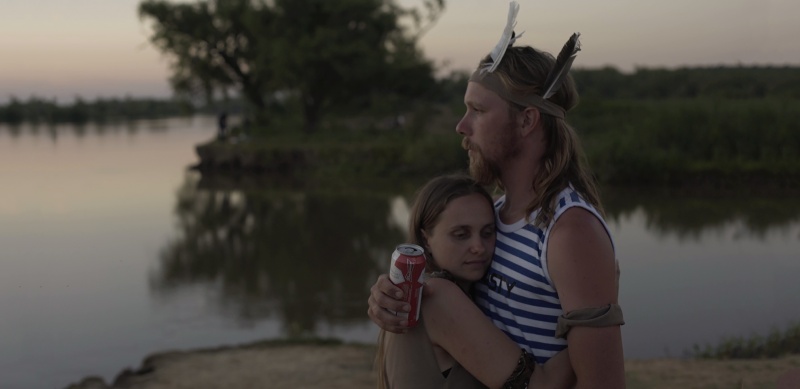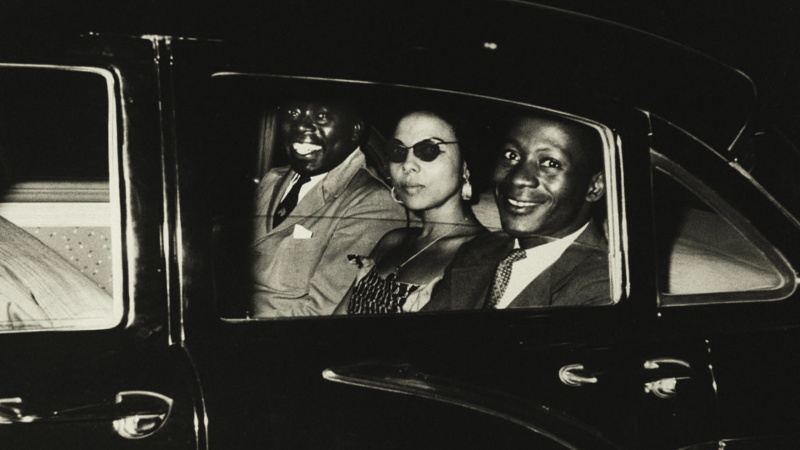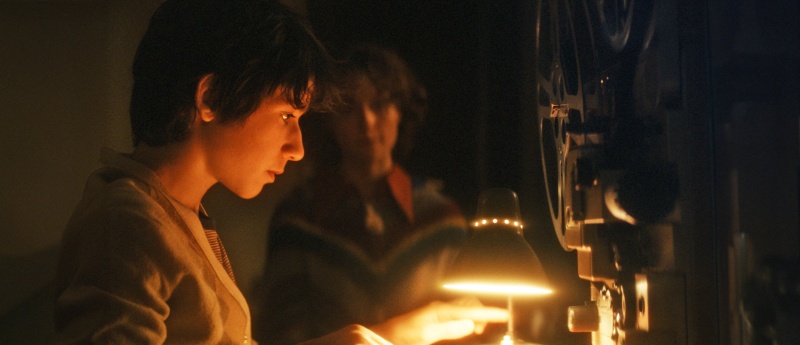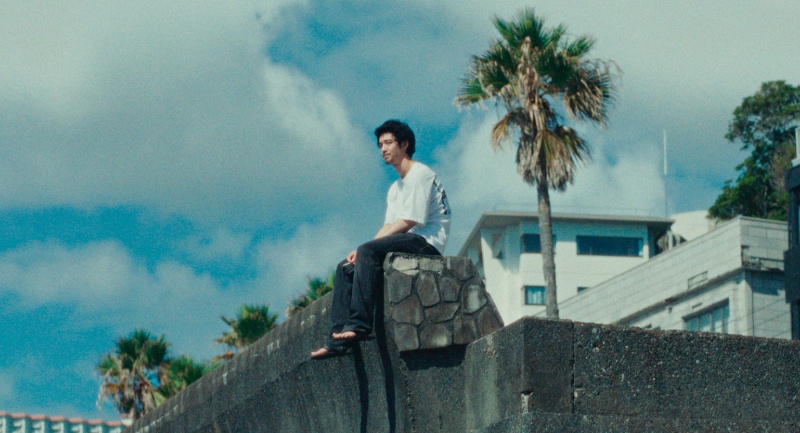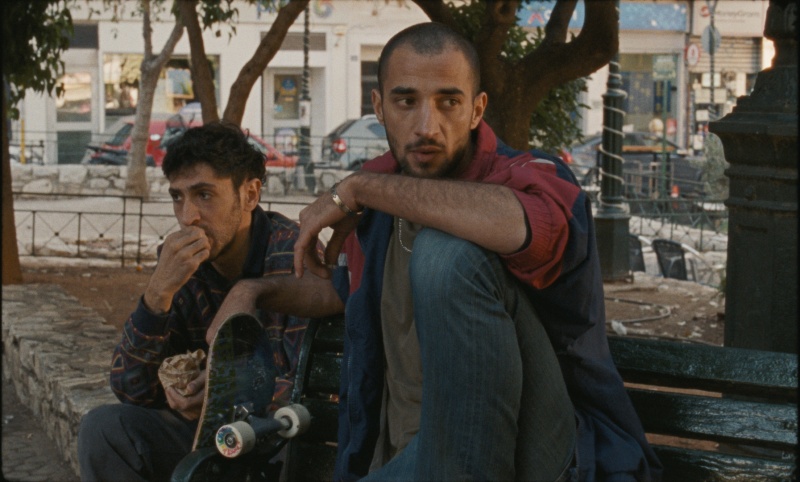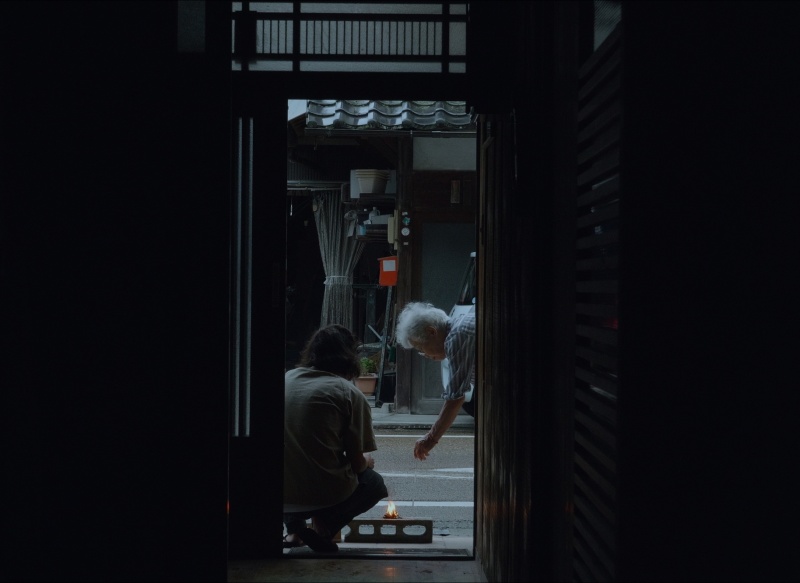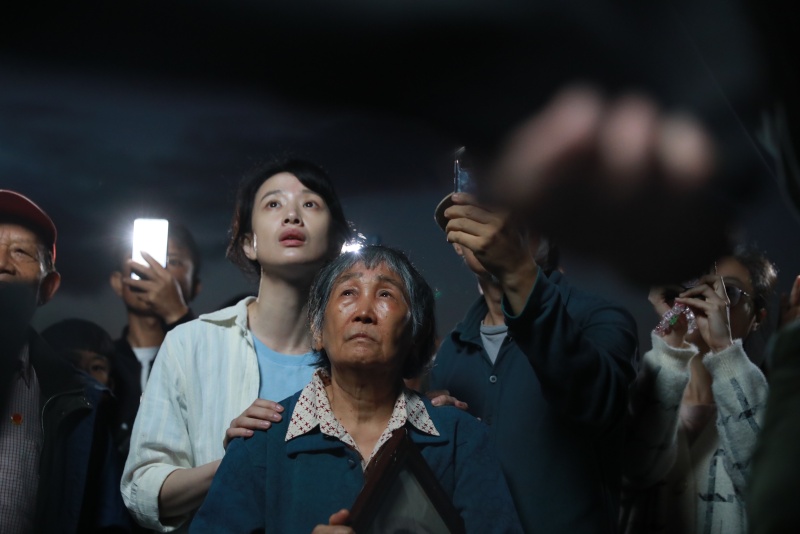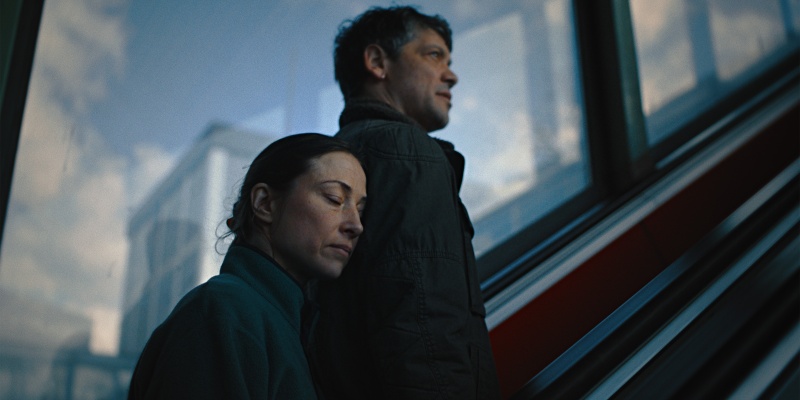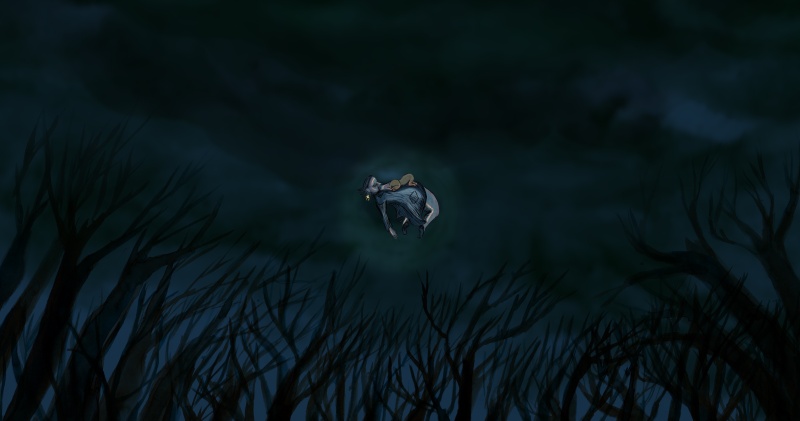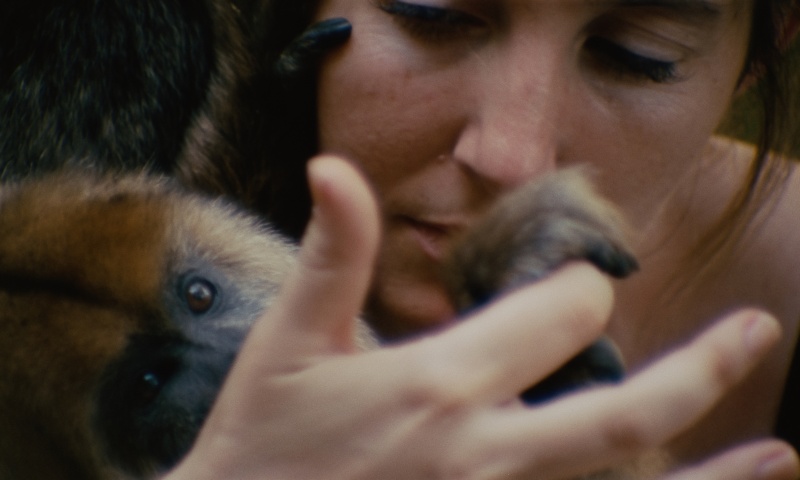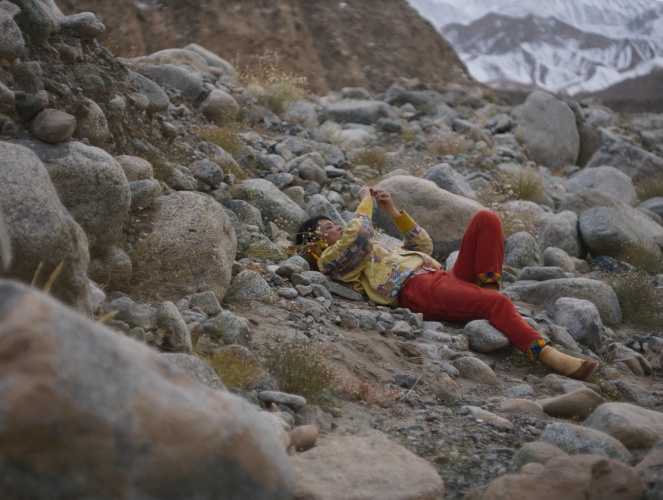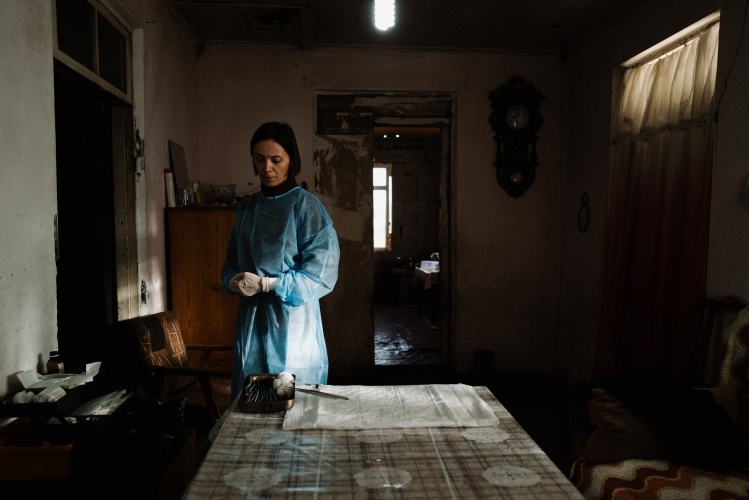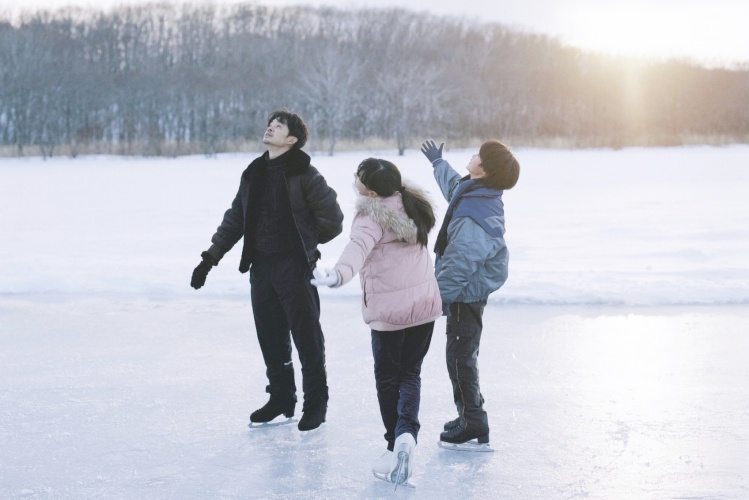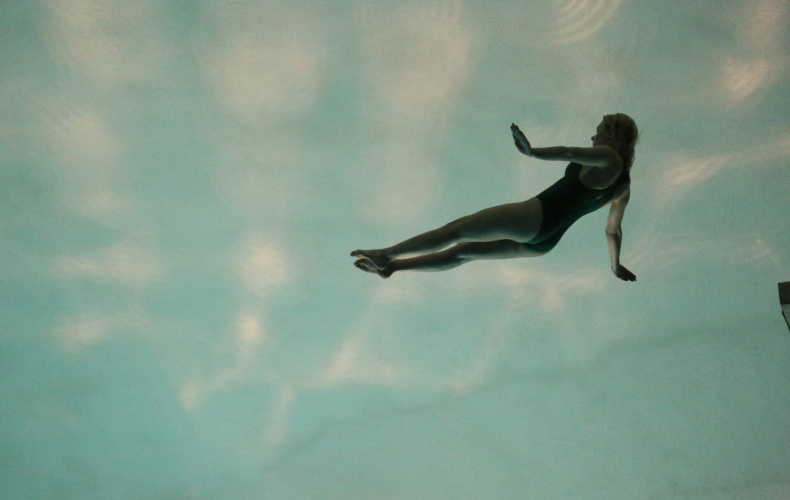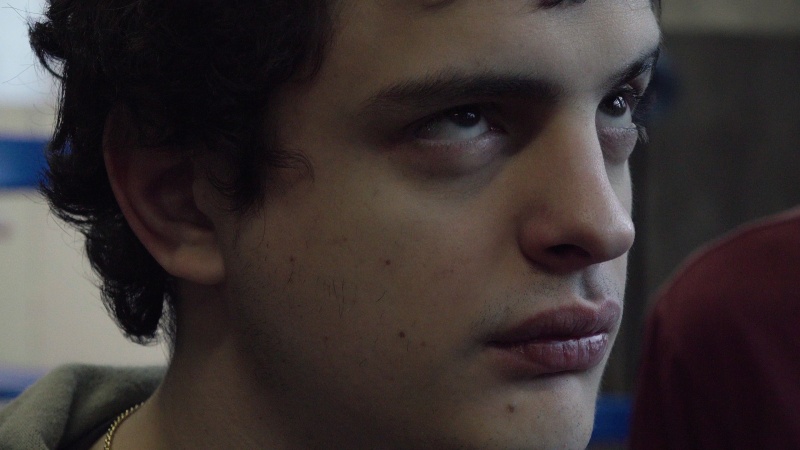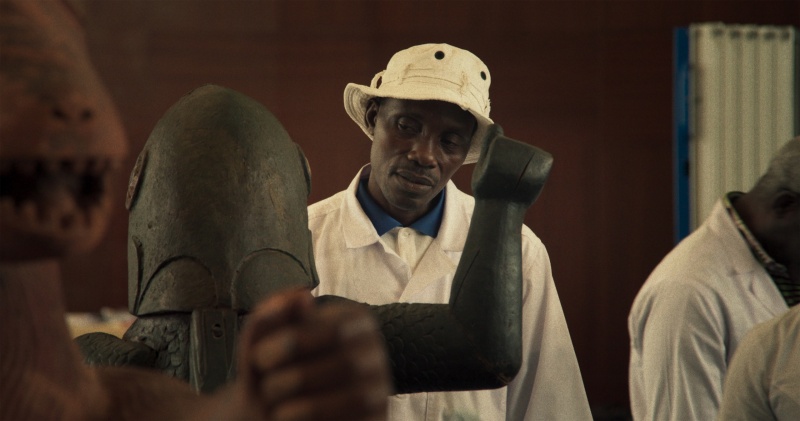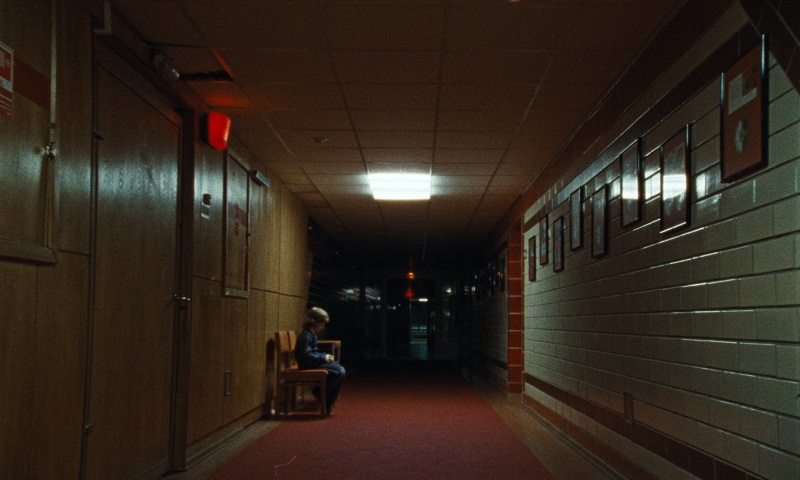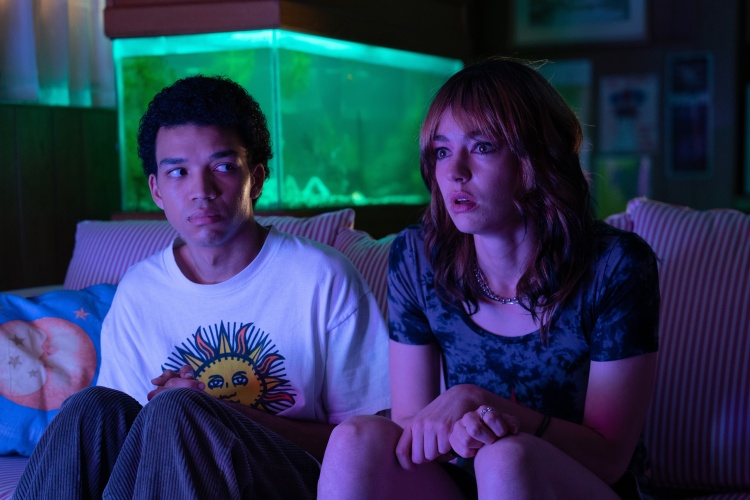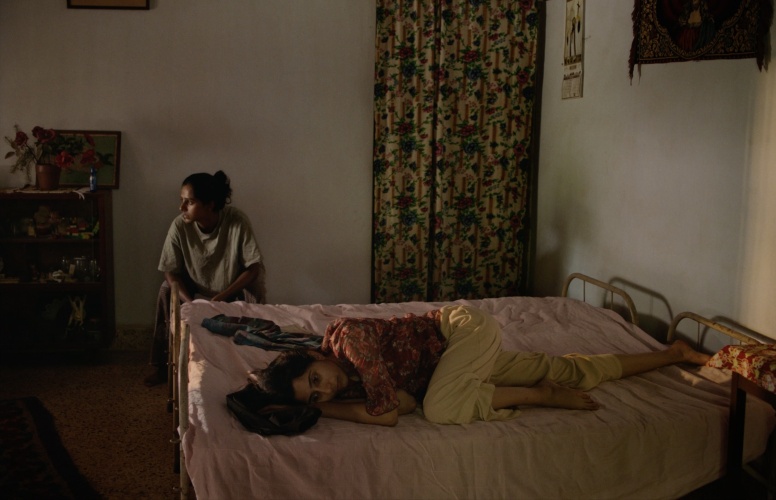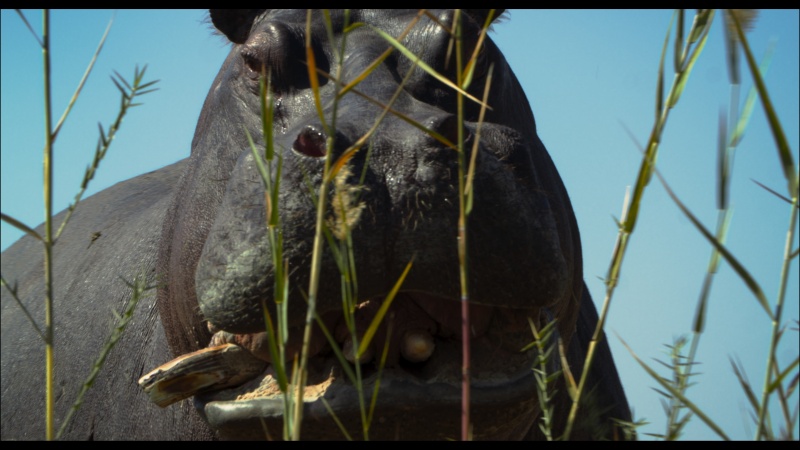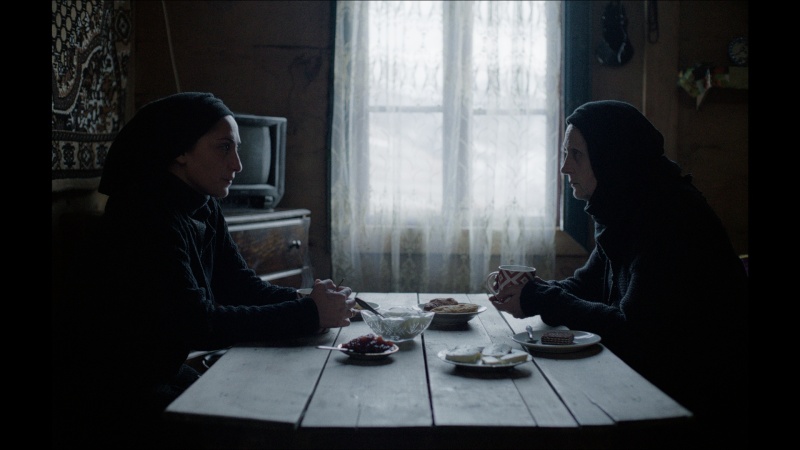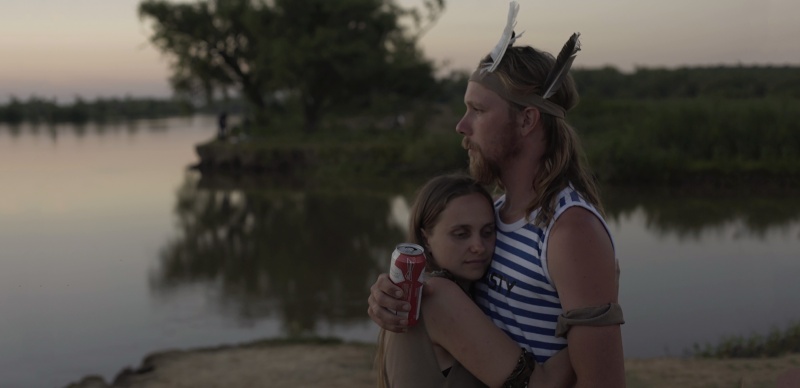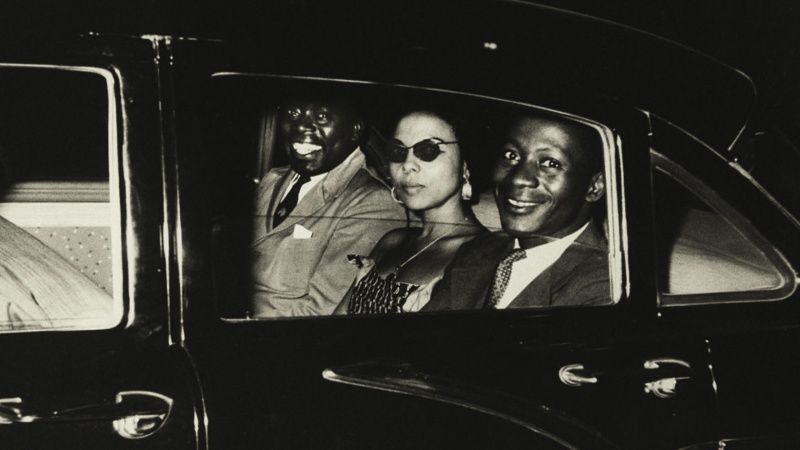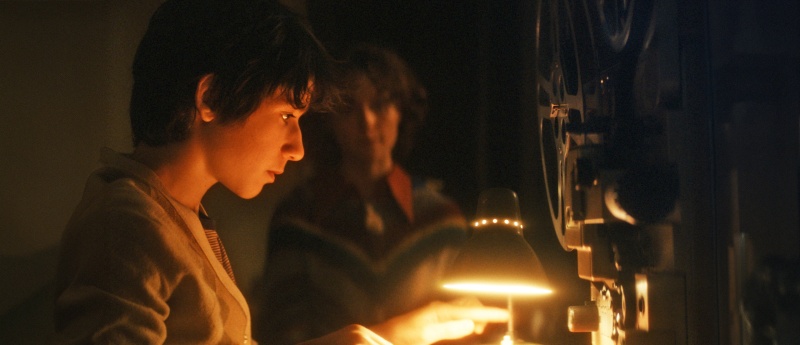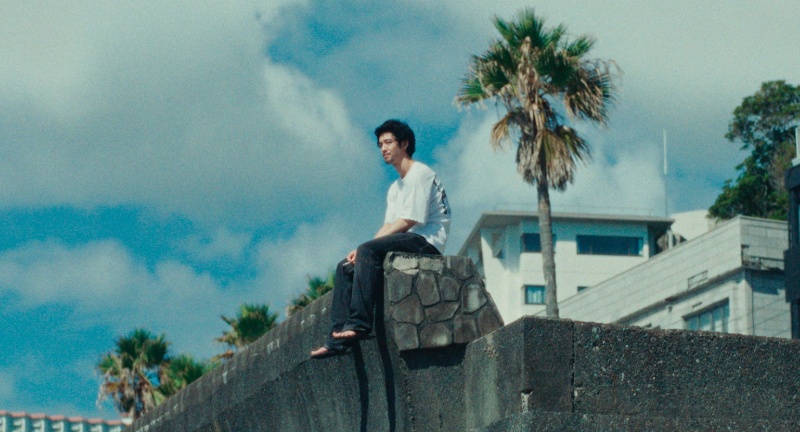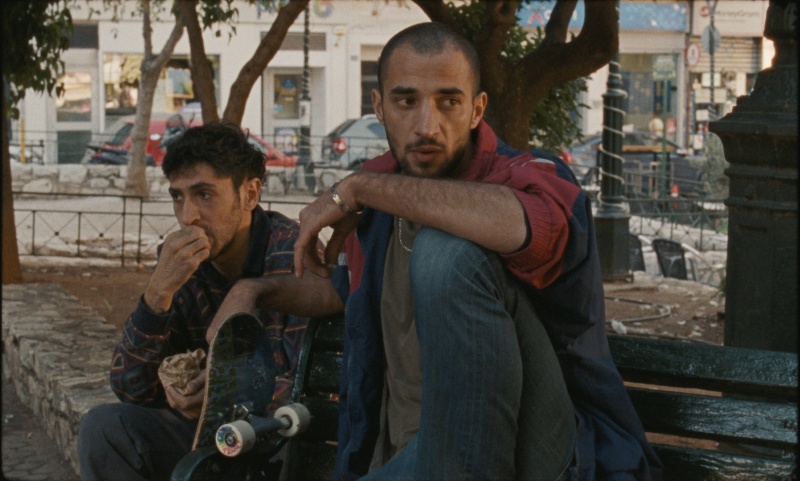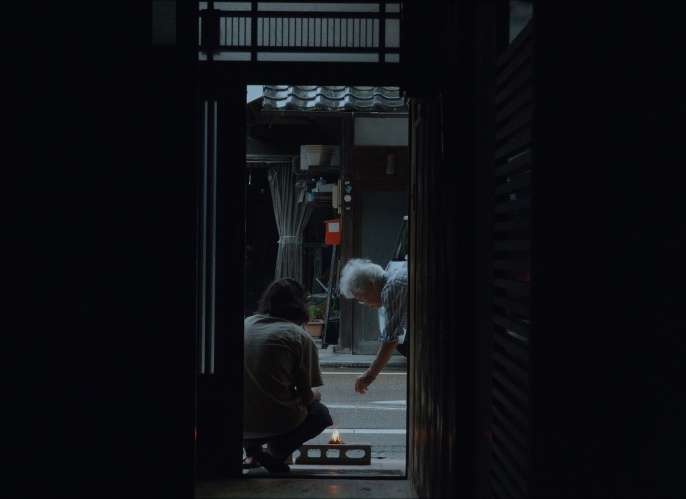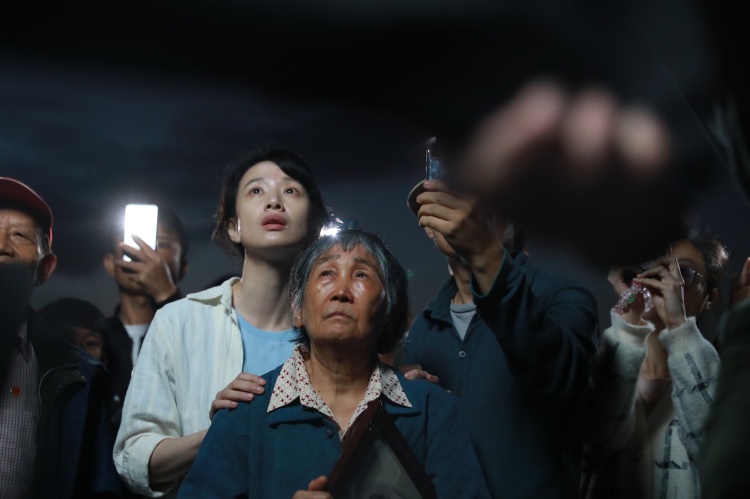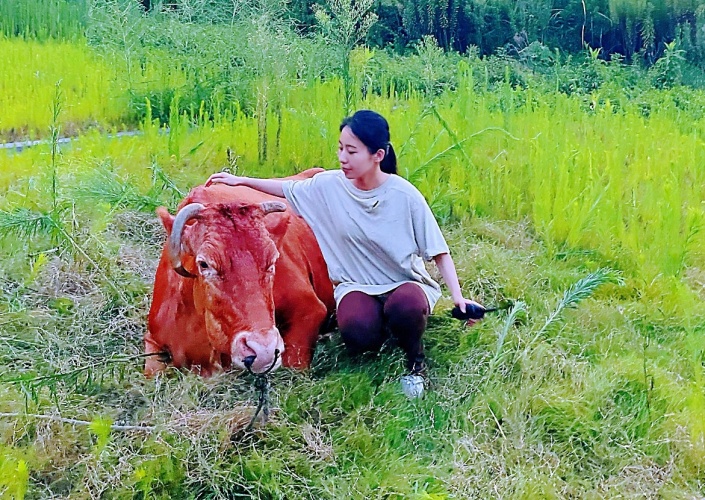The remaining titles are, in the main, feature-length and short films to have been awarded or programmed at Cannes, Berlín, Locarno, Rotterdam, Sundance and Venecia, among other festivals
Opening with Dahomey by Mati Dop and closing with Aprili / April by Dea Kulumbegashvili, the Zabaltegi-Tabakalera section of the San Sebastian Festival’s 72nd edition will include names such as those of Leos Carax, Arnaud Desplechin, Elena López Riera, Nelson Carlo de los Santos Arias and Jane Schoenbrun, as well as films awarded or programmed at festivals including Cannes, Berlin, Locarno, Rotterdam, Sundance and Venice. Others screening as world premieres are those of Nino Benashvili, Wu Lang, Yoyo Liu and Maximiliano Schonfeld. The section will include the participation of 23 titles competing for the Zabaltegi-Tabakalera Award: thirteen feature films (two of which come from the Ikusmira Berriak project residency), two medium-length movies and eight shorts.
Dahomey, the non-fiction to have bagged Mati Diop (Paris, 1982) the Golden Bear for Best Film at the last Berlinale, addresses the debate sparked by the return to Africa of 26 treasures from the Kingdom of Dahomey looted in 1892 by the French colonial troops. The film opening Zabaltegi-Tabakalera marks the return of the director who formerly participated in the section with Atlantique / Atlantics (2019) after having landed the Grand Jury Prize in Cannes.
Closing the section is Aprili / April, second feature from Dea Kulumbegashvili (Georgia, 1986), whose debut, Dasatskisi / Beginning (2020) carried off four accolades in San Sebastian: the Golden Shell for Best Film, the Silver Shells for Best Director and Best Actress and the Jury Prize for Best Screenplay. Kulumbegashvili, who had the opportunity to enjoy an artistic residence in Tabakalera in 2021 and presided over the Official Jury that same year, will compete at the coming Venice Mostra with this film about an obstetrician accused of negligence. The Georgian moviemaker has used images inspired by her installation Captives, one of the audiovisual pieces including in the 2022 Tabakalera exhibition, Vive le cinéma!
The Ataka51 collective, coming from Moscow and settled in Paris, with members Dimitri Gorbaty, Philipp Ivanov, Alex Epikhov and Sergei Medvedev, produces short films, videos and live performances. Their latest work, Gimn chume / Hymn of the Plague, takes place in an old Soviet recording studio where the musicians try to record a composition based on Pushkin’s work, A Feast in Time of Plague. The film carried off the Silver Pardino in Locarno Festival’s international short film competition.
The Georgian writer/director Nino Benashvili (Tbilisi, 1993) will compete with the world premiere of her short film Sadac dro idga / Where Time Stood Still. The film depicts the life of a widowed mother and her daughter in an isolated village in the Caucasus mountains, which is interrupted by the arrival of a foreign traveller in need of shelter. Her previous work, the documentary short film Children of Nikozi (2021), won the Bronze Remi at the WorldFest-Houston International Film Festival.

In C’est pas moi / It’s Not Me, a medium-length film included in the Cannes Première section of the French Festival, Leos Carax (Suresnes, 1960) paints a self-portrait taking a free-form look at his filmmaking background. Boasting a career spanning more than four decades, Carax has participated in and won awards at myriad events with titles such as Boy Meets Girl (1984), Mauvais sang (Bad Blood, 1986), Les amants du Pont-Neuf (1991), Holy Motors (2012) and Annette (2021). Another of his films, Pola X (1999), screened as part of the themed retrospective: Backwash: The cutting edge of French cinema at the San Sebastian Festival in 2009.
Two young girls talk about the recent mysterious disappearance of a third in Leela, the Indian short film selected at the Rotterdam International Film Festival. Tanmay Chowdhary (Kolkata, 1990) has directed this film after his previous work, Madhu / Honey (2022), was screened at several international festivals, including a showcase at the Museum of Modern Art in New York.
Also programmed in the Backwash season was Rois et reine (Kings & Queen, 2004), the film that saw the participation in the Venice Mostra of Arnaud Desplechin (Roubaix, 1960), a regular author at the Cannes competition where he has shown works including La sentinelle (The Sentinel, 1992), Esther Kahn (2000) and Frère et soeur (Brother and Sister, 2022). Desplechin, who, following his stint at the Quinzaine des Cinéastes, was programmed in Perlak with Trois souvenirs de ma jeunesse (My Golden Days 2015), comes to Zabaltegi-Tabakalera with Spectateurs ! / Filmlovers!, a celebration of the magic of the cinema screened out of competition at the last Festival de Cannes.
Palestinian-Danish filmmaker Mahdi Fleifel (Dubai, 1979) participated in the Cannes Quinzaine des Cinéastes with his first fiction feature film, To a Land Unknown, which follows two refugees as they hatch an extreme plan to obtain fake passports and escape from Athens. His short films have been showcased at festivals such as Cannes, Berlin and IDFA (Amsterdam), while his earlier work, A World Not Ours (2012), a feature-length documentary, premiered in Toronto and screened in the Panorama section of the Berlin Festival, where it was awarded the Peace Film Prize.
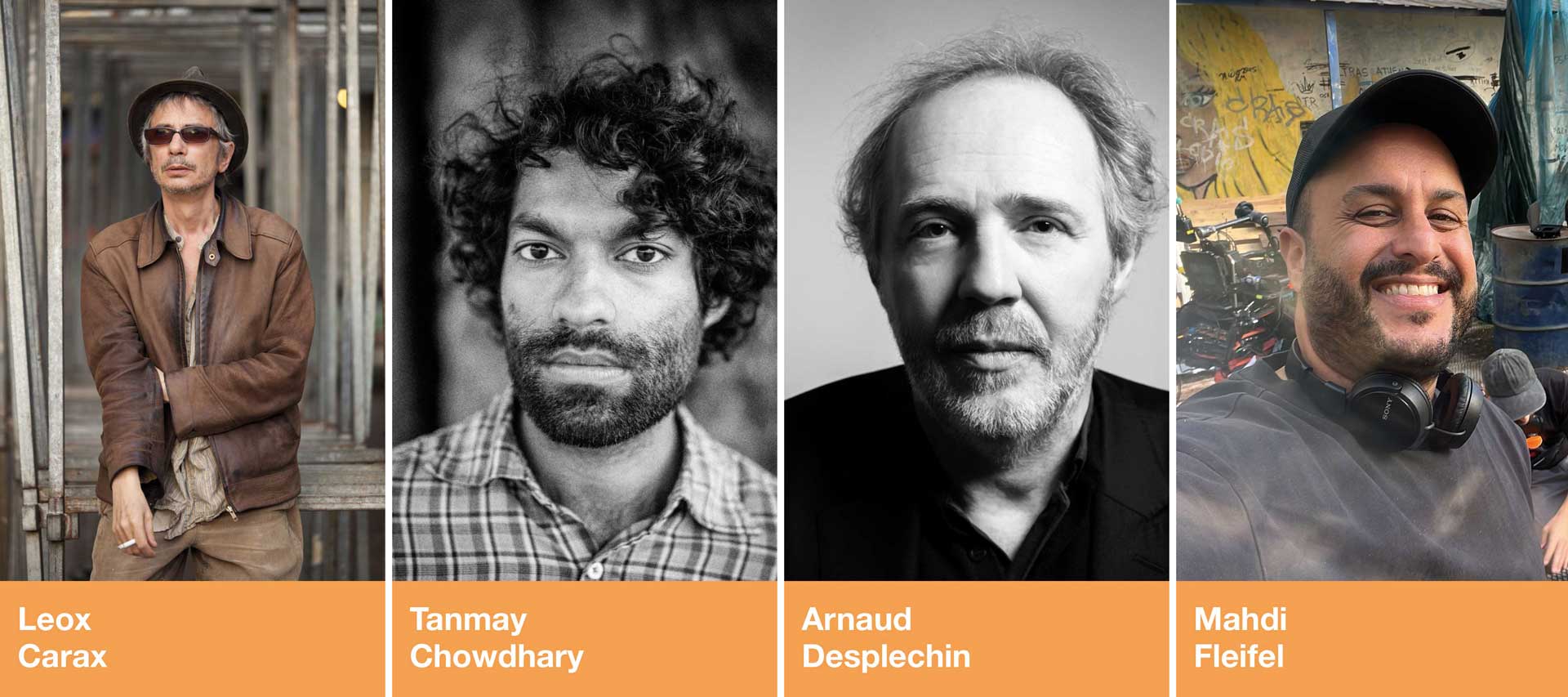
Soundtrack to a Coup d’Etat, in which the Belgian Johan Grimonprez (Roeselare, 1962) talks about jazz and decolonization, landed a Special Jury Prize for its cinematic innovation in the world documentary section at Sundance Festival. A multimedia artist and filmmaker, Grimonprez has directed short and feature films such as Double Take (2009) and Shadow World (2016), winner of the Best Documentary Award at Edinburgh Festival.
Kohei Igarashi (Shizuoka, 1983) will return to Zabaltegi-Tabakalera, where he participated with the feature-length La nuit où j'ai nagé / Oyogisugita Yoru / The Night I Swam (2017), co-helmed with Damien Manivel and premiered in the Orizzonti section of the Venice Festival, and the short film Suigyo no majiwari / Two of Us (2023). The latter precisely provided the starting point for the movie he is presenting this year at the Giornate degli Autori in Venice, Super Happy Forever, following two friends who return to a spa where one of them fell in love five years previously.
Also returning to the section is Wu Lang (Yiyang, 1991), the Chinese director who participated in last year’s edition with a feature film premiered in the Encounters section of the Berlinale, Xue yun / Absence (2023) and a short film Duan pian gu shí / Short Story (2023), respectively. This year he will present the world premiere of a new short film, Yao yuan de xia wu / Here Comes the Sun, opening when a rocket base disturbs the tranquillity of a fishing village.
Viv Li (Beijing, 1990) landed a special mention in the student documentary section of the Amsterdam Documentary Film Festival (IDFA) with the short I Don't Feel at Home Anywhere Anymore (2020) and this year participated in the short film competition at Cannes with Across the Waters, set in a remote mining town.
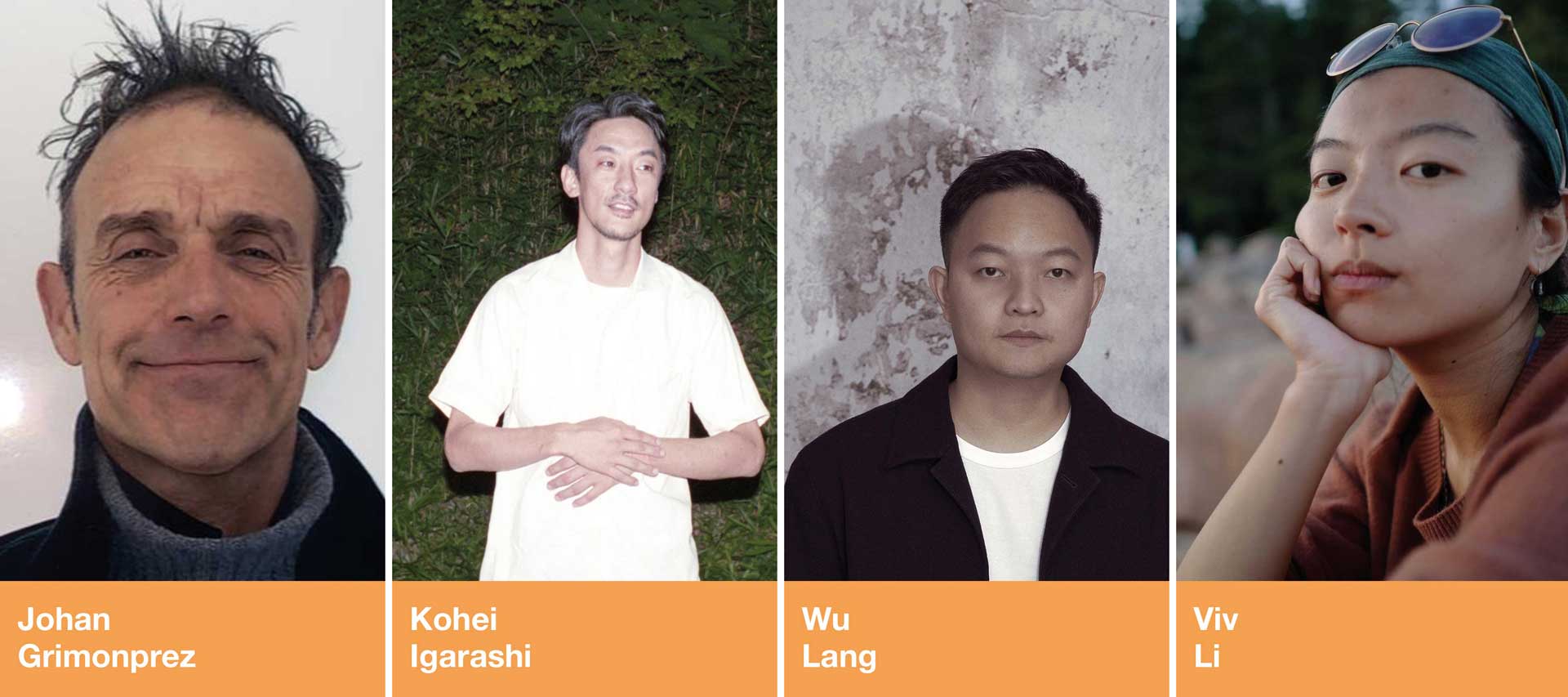
Zabaltegi-Tabakalera will also host the world premiere of the Chinese short film Nai niu / Milky White, set in a remote rural area where a cow becomes the hope of an entire family. This is the directorial debut from Yoyo Liu (Hangzhou, 2002), who is currently studying Media Arts at Emerson College in the USA.
Federico Luis (Buenos Aires, 1990) will participate with Cómo ser Pehuén Pedre / How to be Pehuén Pedre, whose lead character trains two actors to obtain their disability certificates. This short film included in the Visions du Réel competition is in direct dialogue with Luis’s feature debut, Simón de la montaña / Simon of the Mountain, winner of the Grand Prix at the Semaine de la Critique and programmed in this year’s Horizontes Latinos selection in San Sebastian.
Hiroshi Okuyama (Tokyo, 1995), who won San Sebastian’s Kutxabank New Directors Award with Boku wa Iesu-sama ga kirai / Jesus (2018), returns to the Festival with his second feature-length movie, included in Un Certain Regard at the Festival de Cannes. Coming with the title of Boku no Ohisama / My Sunshine, the movie narrates the connection between two young ice skaters with completely different personalities.
Nelson Carlo de los Santos Arias will show Pepe, winner of the Silver Bear for Best Director at this year’s Berlinale. A hippopotamus stars in the latest film from the Dominican helmer who landed the Georges de Beauregard at the FID Marseille with his thesis film, Santa Teresa y otras historias / Santa Teresa & Other Stories (2015), going on to direct Cocote (Horizontes Latinos, 2017), his first feature outside academia, Best Film Award in the Signs of Life section at Locarno.

Having directed We’re All Going to the World’s Fair (2021), Jane Schoenbrun (New York, 1987) presents I Saw the TV Glow, premiered in the Midnight section of the Sundance Festival and programmed in the Panorama section at Berlin, among other events. The protagonist of this latest work from the North American director is a teen whose reality starts falling to pieces on discovering a mysterious nighttime TV show.
Sombra grande / Big Shadow, the non-fiction from Maximiliano Schonfeld (Crespo, 1982) about recovery of the Chaná language in the Entre Ríos province, participated in last year’s WIP Latam and will have its world premiere in Zabaltegi-Tabakalera. The Argentinian filmmaker opened Horizontes Latinos with Jesús López (2021), which had previously screened at Proyecta and in WIP Latam, and has formerly shown his works at Berlin, BAFICI, DocLisboa and Mar del Plata, among other festivals. During his participation in the Festival, Schonfeld will take the opportunity to present his video installation Sombra grande / Big Shadow in Tabakalera.
Hikaru Uwagawa (Hiroshima, 1996), a Japanese filmmaker who completed the post-graduate Filmmaking course at the Elías Querejeta Zine Eskola, comes to Zabaltegi-Tabakalera with his debut feature, Ulysses. Developed in the Ikusmira Berriak projects residency in 2023 and premiered in the First Film Competition section of FID Marseille, the film addresses three fragmented tales of everyday lives in different parts of the world set around the concept of home.
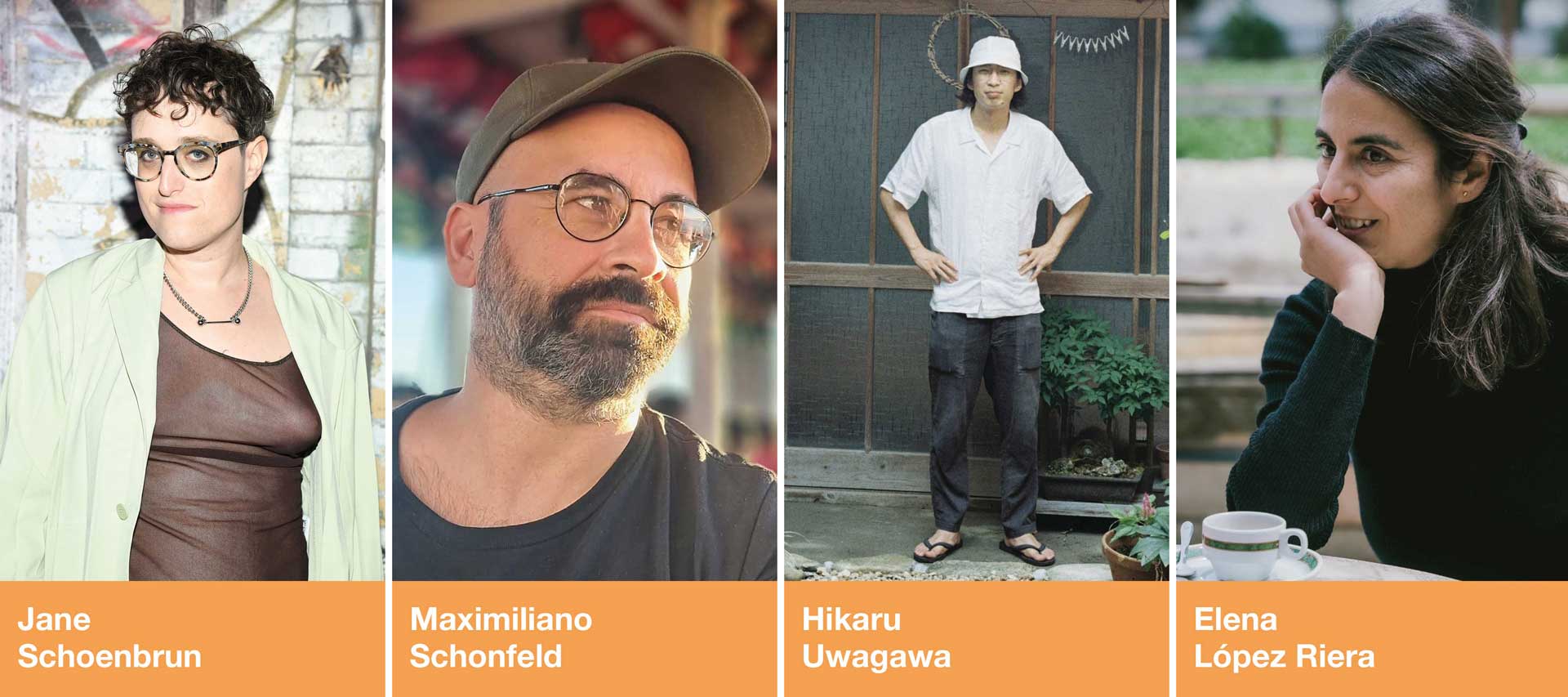
The selection also includes a number of titles previously announced: the medium-length film by Elena López Riera (Orihuela, 1982), Las novias del sur / Southern Brides, premiered at the Semaine de la Critique in Cannes; the second feature film from Michael Fetter Nathansky (Cologne, 1993), Alle die Du bist / Every You Every Me, winner of the two WIP Europa awards later premiered in the Panorama section of the Berlinale; the short by Izibene Oñederra (Azkoitia, 1979) Etorriko da (Eta zure begiak izango ditu) / When It Comes (It Will Have Your Eyes), premiered at Annecy, and the feature-length Monólogo colectivo / Collective Monologue, recently presented in Locarno by Jessica Sarah Rinland, who participated in Ikusmira Berriak with this project and will present an exhibition in Tabakalera on 17 September.
All of the films in Zabaltegi-Tabakalera, the section organised by the San Sebastian Festival and Tabakalera-International Centre for Contemporary Culture, compete for the Zabaltegi-Tabakalera Award, decided by a jury specifically composed for the purpose. The award comes with 20,000 euros divided between the director (6,000 euros) and the distribution company of the film in Spain (14,000 euros).
November 2021. 26 royal treasures of the Kingdom of Dahomey are about to leave Paris to return to their country of origin, the present-day Republic of Benin. Along with thousands of others, these artefacts were plundered by French colonial troops in 1892. But what attitude to adopt to these ancestors’ homecoming in a country that had to forge ahead in their absence? While the soul of the artifacts is freed, the debate rages among students at the University of Abomey-Calavi.
After a newborn dies during delivery, the morals and professionalism of an OB-GYN, Nina, come under scrutiny amid rumors that she performs illegal abortions for those in need.
Sandstorm blows, water becomes scarce. In a remote mining town without any radio signals, a quirky teenage girl gets curious about a passing truck driver.
What if the person you love the most suddenly becomes a stranger in your eyes? Nadine, a dedicated factory worker, tries to revive her relationship by reconnecting with her deepest emotions. But who did she once see in him that she can no longer find? A romantic social drama about the painful process of falling out of love and the initial magic of falling in love.
On a small Japanese island, life revolves around the changing seasons. Winter is time for ice hockey at school, but Takuya isn’t too thrilled about it. His real interest lies in Sakura, a figure skating rising star from Tokyo, for whom he starts to develop a genuine fascination. Coach and former champion Arakawa, spots potential in Takuya, and decides to mentor him to form a duo with Sakura for an upcoming competition.
A self-portrait traversing a filmography spanning more than 40 years from the director who, while questioning the decisive moments of his life, captures the political fears of the time.
Pehuén Pedre trains two actors for an examination at the civil registry, where both will have the opportunity to obtain their own disability certificate.
A small community brought to its knees by an environmental crisis adapts as it can to the new reality. The more privileged inhabitants enjoy a hedonistic life based on the notion of carpe diem, while the others have no choice but to get by as they can. What does the future hold? If there’s nothing else, can anything save us?
In an old Soviet recording studio, a group of musicians attempt to record a composition based on Pushkin's play A Feast in Time of Plague. A weird and frightening phenomena disturbs the musicians - whether it is the spirits of the past or an echo of a war. Nobody notices what is happening around them until the very end.
Teenager Owen is just trying to make it through life in the suburbs when his classmate introduces him to a mysterious late-night TV show - a vision of a supernatural world beneath their own. In the pale glow of the television, Owen's view of reality begins to crack.
Mature women discuss marriage, their first time, their intimate relationship with sexuality. By repeating these ancient rites, the director questions her own lack of wedlock, children and, with it, a chain of disappearing mother-daughter relations.
In a coastal town in India, two young women encounter the news of a missing acquaintance Leela. Rumors about her death have spread, with uncertainty surrounding whether she took her own life or managed to escape to the city. As they go on about their day debating her disappearance, the nature of their relationship in this dead end town reveals itself.
Intimate and fragmented moments unfold in a community of zoos and animal rescue centers across Argentina. As histories of these institutions are uncovered, dedicated workers commit both day and night to caring for the remaining enclosed animals, fostering a mutual bond that transcends imagined boundaries between human and animal.
In a remote rural area, a mother tragically dies during childbirth, leaving behind a daughter who witnesses the event. With no breast milk for the newborn, the family's cow becomes their lifeline, providing sustenance and hope. The daughter's bond with the cow deepens over time, until another ruthless tragedy strikes, shattering their fragile world once more.
A voice that does not grasp the structural perception of time. From a trance, it traverses the languages of a historical event. Claiming to be the hippopotamus killed in Colombian lands. This is its story, which, like these neighbouring towns, was shaped by beings who died never truly knowing where they really were.
A widowed mother and daughter's ascetic life in an isolated village in the Caucasus mountains is interrupted by the arrival of a foreign traveller in need of shelter. His presence awakens erotic longing in both women, who are left to simmer in their guilty consciences after the traveller departs.
A few years ago a man appeared, claiming to speak an ostensibly lost language: Chaná. In only a short time dictionaries were published and the language was completely recovered. This man also situated the Chaná people in the same place where the descendants of the Volga Germans, in the Entre Ríos province, are today inexorably losing their dialect.
Jazz and decolonization are entwined in this historical rollercoaster that rewrites the Cold War episode that led musicians Abbey Lincoln and Max Roach to crash the UN Security Council in protest against the murder of Congolese leader Patrice Lumumba. It is 1961, six months after the admission of 16 newly independent African countries to the UN, a political earthquake that shifts the majority vote from the colonial powers to the Global South.
"What does it mean, to go to the movies? Why have people been going for over one hundred years? I set out to celebrate movie theaters and their manifold magic. So I walked in the footsteps of young Paul Dédalus, as if in a filmgoer’s coming-of-age story. Memories, fiction and discoveries come together in an irrepressible torrent of pictures". (Arnaud Desplechin)
Accompanied by his best friend Miyata, Sanu returns to Izu, a Japanese seaside resort where he fell in love five years earlier with his wife Nagi. Overcome by grief and nostalgia for the place, Sano starts looking for a red cap that Nagi had once misplaced.
Chatila and Reda are saving to pay for fake passports to get out of Athens. But when Reda loses their hard-earned cash to his dangerous drug addiction, Chatila hatches an extreme plan, which involves them posing as smugglers and taking hostages in an effort to get him and his best friend out of their hopeless environment before it is too late.
A son and his immigrant mother in Madrid wait for his father to return. A Basque woman and a Japanese man meet in San Sebastian and he shares his stories about home. A drifting Japanese man returns to his family for Obon to welcome the spirits of the deceased. These fragmental stories of each daily life in different places of the world imply their reminiscence of home.
On the seaside, a rocket base breaks the tranquility of the fishing village. As the rocket takes off, life begins to change. Grandma wakes up during the evacuation, longing to find Ah-Wen and the good old days.

